The biggest tech sleeper hits of the past decade
Repeat after me: iteration is key, iteration is key, iteration is key

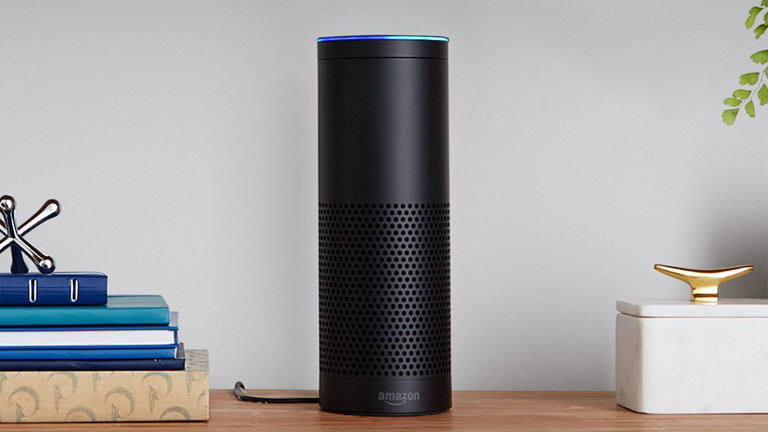

Introduction
Some products are (relatively) overnight successes. Facebook, for example, grew to around 1.4 billion users in just 10 years while Apple introduced the iPhone in 2007 and now makes one hundred billion dollars from it every year.
In the past, successes like these would have taken much longer. Henry Ford, for example, created the motor car as it is today in the early 1900s, but it wasn't until the 1950s and 1960s that mass adoption really started.
The internet and the advance of technology have led to quick, purposeful adoption of certain products—but that still leaves a set that conform to older rules. Some things, like the Microsoft Surface, start small and then, without anyone noticing, turn into successes.
Here are the biggest “sleeper hits” of the past 10 years.

Surface Pro
Microsoft introduced the original Surface in October 2012, two years after Apple introduced the original iPad. The first generation device was, for Microsoft, a big step for its future but it didn't look that way at the time.
The original batch—later iterated to the more powerful Surface Pro—was clunky, especially when compared to the iPad. Panos Panay, the man who now runs the Surface team within Microsoft, admitted in an interview that the team made a big mistake when unveiling the product.
“When we launched the original Surface Pro, people compared it to an iPad, because I didn't frame it.” he said. This, in turn, led to a misfire. “The press...grabbed [the Surface] and were like…'look at this, it's thicker, it's heavier,'” he concluded.
Despite these initial flaws, the Surface has gone on to become a success. The iPad Pro, launched in November last year, was widely accepted to take the formula that Microsoft uses for the Surface and apply it to Apple's line of tablets, which have seen falling sales.
As PC sales fall, the Surface has remained steady and, after an initial $900 million write down of unsold stock, has turned into a money-spinner for the company, with $1.4 billion in revenue over the holiday quarter.
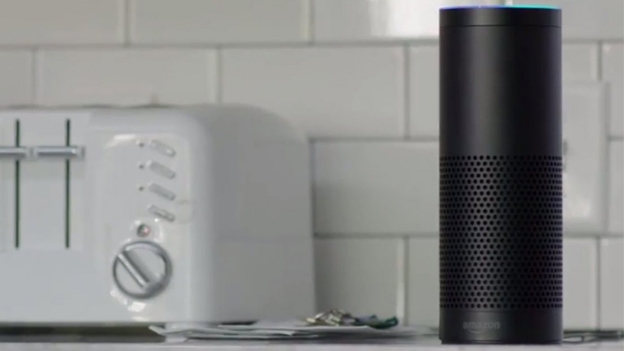
Amazon Echo
The Amazon Echo is not yet available in the U.K., but customers in the U.S. are just discovering what a great, useful, and unique product it is—almost one year after it launched.
The Echo follows directly on the heels of the Fire Phone, which aimed to compete with the iPhone and Android phones but was taken off the market within a year of its announcement. However, the Echo competes in a market that, well, didn't exist before Amazon arrived and, according to reviews, it does a very good job.
The device works like Siri, but in a tall column that can be placed on a sideboard in a kitchen. It listens to commands the user makes and acts on them. The original use was for shopping—“Oh, I need some eggs,” you might murmur while cooking, and so on—but it has since morphed to do other things, like play music.
Amazon doesn't announce sales for its individual products, but there are almost 33,000 reviews on Amazon.com and analytics firms are pegging sales in the tens of millions.
“More than a year later, Echo is still pretty curious—in a good way,” wrote Dan Frommer, in an opinion piece for Quartz. “[I]t feels like a sleeper hit that could potentially break through to the mainstream.”
- Read more: Amazon Echo can now do your shopping for you
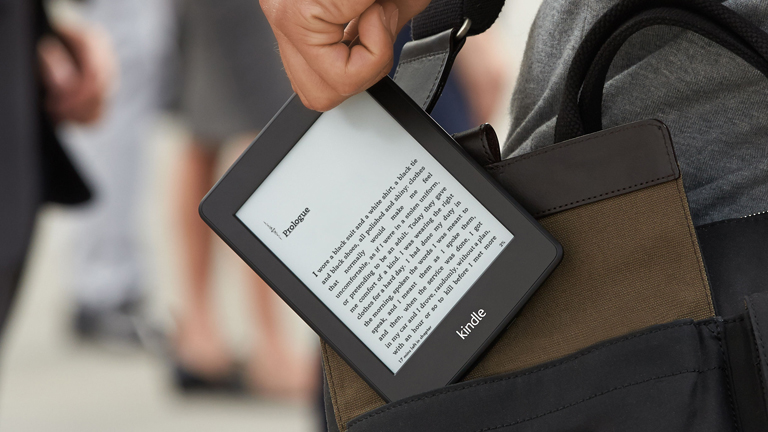
Amazon Kindle
Unlike the Echo, the Kindle tablet debuted in a market that did already exist—e-book readers—but adopted the Apple-like philosophy of providing the best experience, despite not being first.
The first generation Kindle was not a massive success, both in terms of sales and design, but the company went back to the drawing board and version two—which debuted in 2009—ironed out the wrinkles and formed the groundwork for what would become the best e-reader on the market.
Over time, Amazon has expanded the Kindle into a fully fledge tablet—the Fire—and has worked on display technology, making books look better while conversing battery and retaining the same slim, elegant design.
- Read more: Amazon Kindle Voyage review
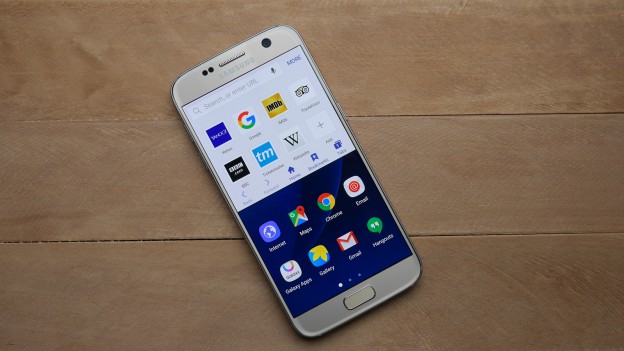
Samsung Galaxy
Samsung is now a big name in the smartphone business, but the original Galaxy handset—released in April 2009—was largely ignored thanks to its undifferentiated design, software, and price tag.
The company kept at it, however, and the phone really became a success in 2010 with the launch of the Galaxy S. The new phone featured a 4-inch display, powerful internals, and the latest version of Android.
The Note, a larger version with its own stylus, followed almost two years later, further cementing Samsung's place at Apple's side. The two giants now regularly take around 98% of the available profits from smartphones and the Galaxy S7 was described as an “iPhone-killer” by more than one review.
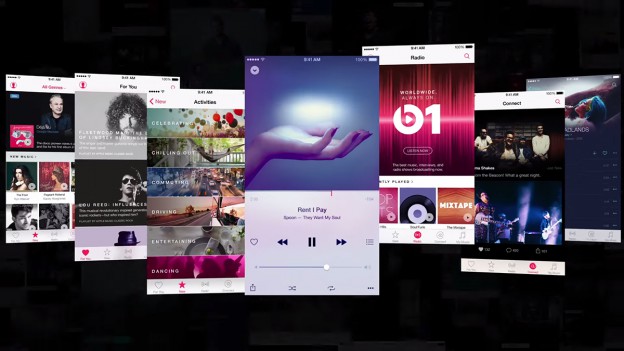
Apple Music
The launch of Apple Music, in June of 2015, was widely considered to be a bold, if futile, attempt at beating Spotify, the biggest name in music streaming, which launched in 2006.
However, Apple Music now has over 11 million paid subscribers, according to Apple, which puts it at around half the size of Spotify, which is thought to have around 25 million. Analysts have claimed that Apple could rapidly catchup to Spotify in the coming years.
This growth comes as a surprise, given that many people dismissed Apple's efforts as a me-too approach which, if examples from Apple, Google, Facebook, and almost every other major technology company are to be believed, do not work.
Artists, like Taylor Swift, initially railed against Apple Music but consumers seem not to mind, embracing the music service in droves. Apple also signed up Drake, the Toronto-born rapper, to help promote the service, but little has been made of that since last year.
- Read more: Your complete guide to Apple Music
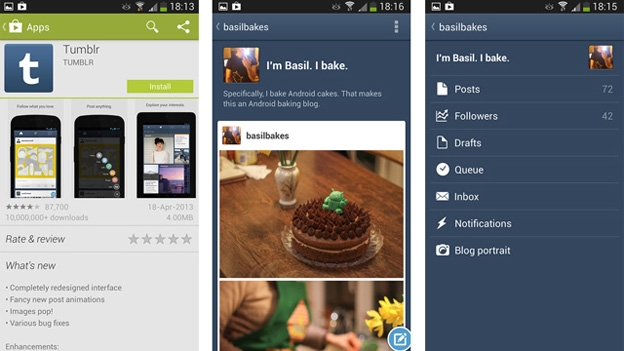
Tumblr
Tumblr launched in 2007 as an alternative social network where gifs, videos, and pictures were emphasised over (long-form) text. The service took off and was acquired by Yahoo in 2013 for a little over $1.1 billion.
Since then, however, the service has grown to 555 million monthly visitors—which is important for a site that is still accessed on the Web rather than via an app—and hosts 282 million blogs.
Many in the media world have dismissed Tumblr as a has-been, especially after the acquisition by Yahoo, but the traffic it generations and the influence it has over popular culture is still tangible.
For example, The New Republic profiled the “secret lives of Tumblr teens” and found that Tumblr's influence was massive. According to the profile, almost everything that ends up on Facebook originated on Tumblr. “Tumblr might just be the new ground zero of the viral internet,” wrote The Washington Post.
This content, which originates on the blogs Tumblr hosts, has been inspired by the freewheeling culture it promotes with no fixed design, blogging style, or user. This ethos also makes it had to figure out what, exactly, Tumblr is without spending years among the community.
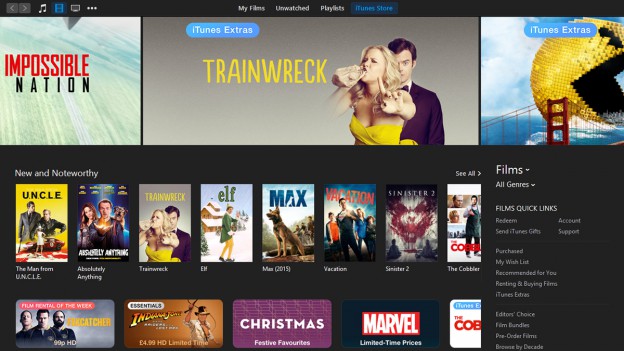
iTunes
For many, iTunes is the product that they love to hate—but it's also massively popular among people who don't live and breathe the internet. It's for this reason that iTunes is, arguably, the biggest sleeper hit of the past 10 years.
Apple regularly touts the vast trove of credit card that it has on file—most recently at the launch of Apple Pay—and much of this is because the company got iTunes right, when it mattered, so that people trusted Apple and online payments.
Buying software or media content used to happen on a disk—be that a CD, DVD, or install disk—but Apple shifted that into a different view: That, without leaving your chair, you could download any song, any film, and any app right to your PC, tablet, or smartphone. That process started in 2003 with the iTunes Store and then again in 2008 with the App Store.
Many people see iTunes as a buggy, overloaded app, but it was actually one of the original ways to get people comfortable with exchanging money for online services, rather than physical products, which would then turn into the App Store which has, everyone can agree, changed the world.
Get all the latest news, reviews, deals and buying guides on gorgeous tech, home and active products from the T3 experts
Max Slater-Robins has written for T3 now on and off for over half a decade, with him fitting in serious study at university in between. Max is a tech expert and as such you'll find his words throughout T3.com, appearing in everything from reviews and features, to news and deals. Max is specifically a veteran when it comes round to deal hunting, with him seeing out multiple Black Friday campaigns to date.
